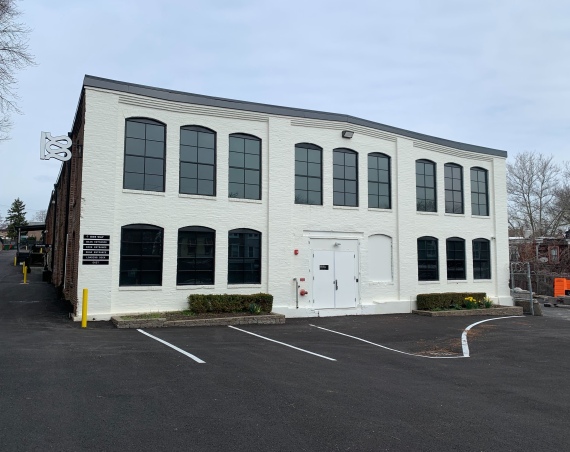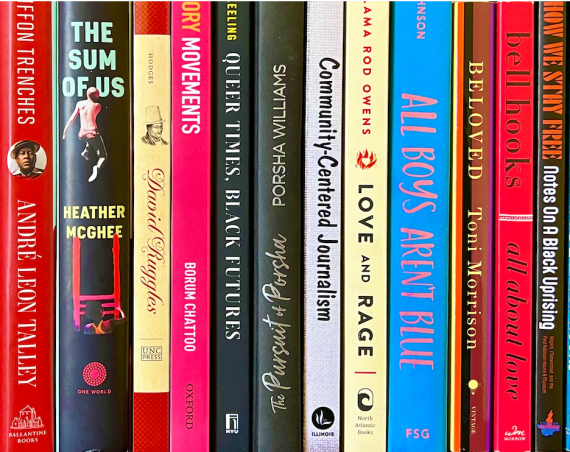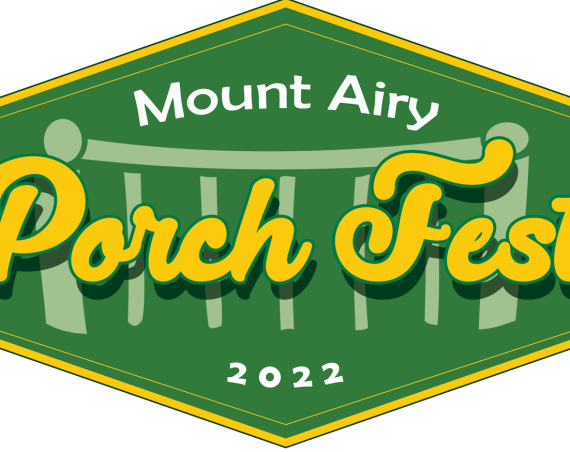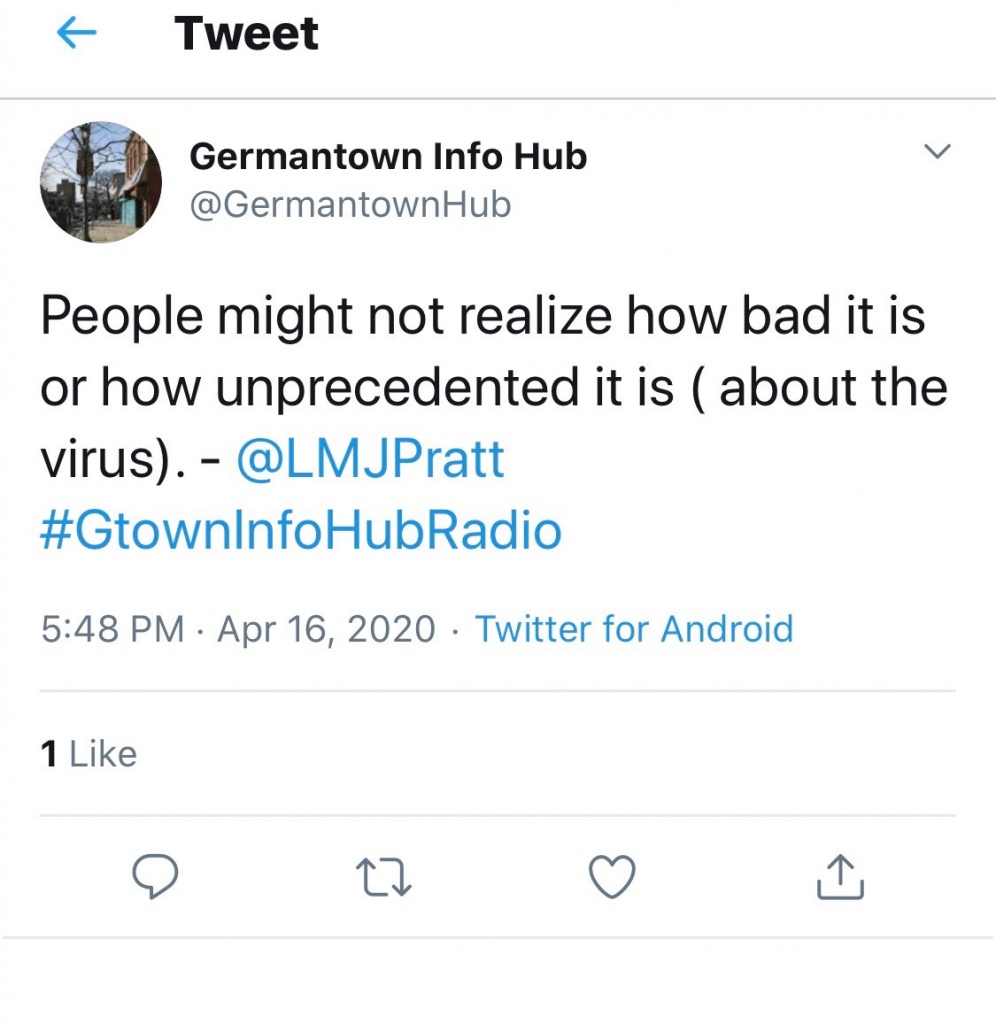
Germantown Info Hub editor and co-researcher Letrell Crittenden spoke with four reporters last Thursday about their experience covering the Coronavirus COVID-19 pandemic.
If you missed the conversation, you can listen to it here.
This episode was the fourth installment of the #Germantowninfohubradio series. Guests for the broadcast, which aired from 5 to 6 p.m. on G-town radio. 92.9 FM with special guests, included the Philadelphia Inquirer’s Julianna Reyes, WHYY’s Darrell C. Murphy, Solutions Journalism Network Fellow Martin Pratt, and Germantown Info Hub’s community reporter Nichole Currie.
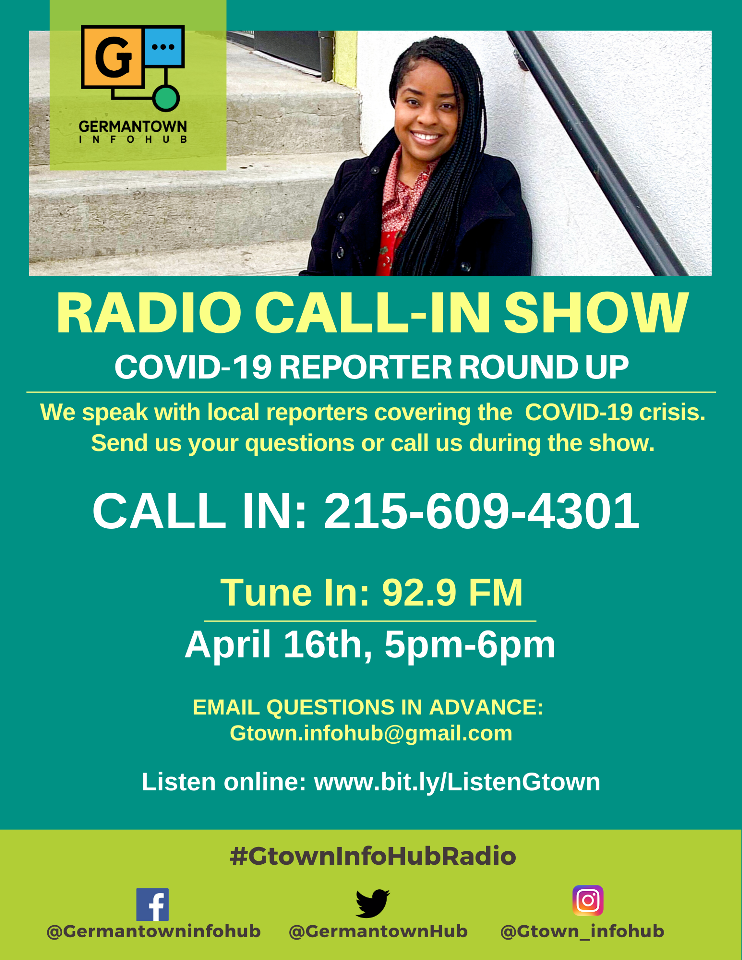
Reyes and Murphy took on the first half of the discussion. The two spoke about safety measures and how they relate to essential workers and transportation services. Reyes covers labor issues across Philadelphia and said two extremes have presented since the COVID-19 crisis. Reyes said people are getting laid off, and secondly, people who are working do not feel safe.
“There really aren’t a lot of protections for frontline workers right now,” Reyes said.
She said federal, and the state government has not communicated how to enforce safety measures like masks. And in addition to essential workers, Murphy touched on vital services such as SEPTA and their concerns.
The WHYY’s transportation reporter said SEPTA is experiencing low ridership but cannot shut its doors like businesses, which may result in a loss of revenue for city transportation.
“It’s a service, it’s a resource that citizens need,” Murphy said. “So they can’t just like shut their doors and save money, you know, they still have to run because there are essential workers who still rely on the system service.”
The second half of the conversation focused on solutions journalism and Currie’s perspective in handling hyperlocal news.
Pratt, who has communicated with many journalists and community members during the pandemic, praised Philadelphian’s resilience, love, and concern for one another. He said Philadelphia is unique in that sense.
“There is as much concern for self as there is for their neighbor,” Pratt said. “In this situation, I’ve seen a lot of selfless and neighborly, really brotherly love, and simply affectionate acts done.”
Currie, who predominantly reports in Germantown, said her work consists of hyperlocal reporting. She said she has seen priorities shift in the neighborhood who was once worried about new developments, to now just having necessities.
Additionally, the community reporter also noticed several unresolved issues magnified once the pandemic paved its ways, such as Germantown’s trash and littering issues. “When a pandemic hits and you’re already not picking up trash as regularly as you should,” said Currie, “when the littering comes, the gloves and the masks, of course, a neighborhood without the appropriate plan to deal with trash, of course, there’s going to be more issues with it.”
Additional topics emerged during the conversation, including the risks of those saving lives, protests, and the government’s transparency on today’s pandemic.

